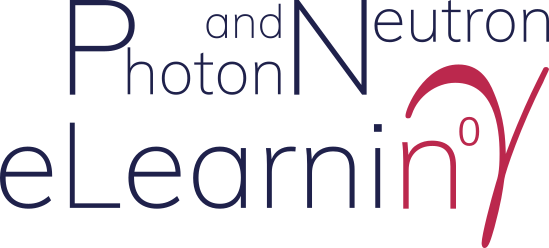-
Moodle course, e-learning
McStas and McXtrace intro
-
Moodle course, e-learning
Advanced Topics in Neutron Scattering
-
Moodle course, e-learning
SasView for new contributors
-
Moodle course, e-learning
Neutron Scattering - KU 2020
neutron scattering -
Moodle course, e-learning
DTU course / X-ray and Neutron Experiments at International Research Facilities
-
Moodle course, e-learning
Introduction to Neutron Reflectometry
-
Moodle course, e-learning
HERCULES
-
Moodle course, e-learning
PaNOSC WP8 Summerschool 2022
-
Moodle course, e-learning
MDANSE 2021
-
Moodle course, e-learning
Highness JupyterHub
-
Moodle course, e-learning
Small Angle Scattering Data Analysis using SasView
-
Moodle course, e-learning
DMSC - Instrument Scientists workshop (2022)
-
Moodle course, e-learning
SasView: Analysis of SAS Data
analyse sas test data - polydispersity - resolution - interparticle interaction -
Moodle course, e-learning
PaN-Training e-Learning
-learning platform hosts free education -
Moodle course, e-learning
Quiz Taster
-
Moodle course, e-learning
Collection of photon science slides
-
Moodle course, e-learning
Neutron Scattering Library
-
Moodle course, e-learning
Introduction to Neutron Scattering
-
Moodle course, e-learning
Materials science in the virtual neutron facility
-
Moodle course, e-learning
Introduction to X-ray Spectroscopy Calculations
-
Moodle course, e-learning
Python Workshop (IKON21)
data analysis library pandas -ikon/tree/master/notebooks -
Moodle course, e-learning
Muons in Superconductivity
extract key length scales -
Moodle course, e-learning
Introduction to small angle scattering
id=19 sans simulation tool sanssimplespheres pan-learning wiki pagehttps _a_small_angle_neutron_scattering_instrument ill youtube videowww uwe keiderling - berlin neutron scattering schoolmartin müller - hercules 2016frank gabel - hercules 2016marianne liebi - hercules 2016 paolo mariani - sisn 2015francesco spinozzi - sisn 2015leonardo chiappisi - bilbao neutron scattering school 2019adel len - cets 2019g pépy - cets 2019wim bouwman - erice 2017 markus strobl - erice 2017 -
Moodle course, e-learning
Illumidesk: Python Course
sequence data types data analysis library pandas -
Moodle course, e-learning
Muons in Semiconductors
-
Moodle course, e-learning
Neutrons, X-rays and Positrons for studying microscopic structures and dynamics
neutron scattering requires large scale facilities large scale facilities master level physics students -
Moodle course, e-learning
Swedness Online 2021
-
Moodle course, e-learning
Erik Knudsen's Course
-
Moodle course, e-learning
Quasielastic Neutron Scattering Course (1st iteration)
QENS neutron -
Moodle course, e-learning
Quasi-Elastic Neutron Scattering
Activity log

